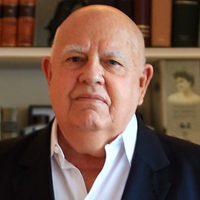Opening and Moderation

Marcos Azambuja (in memoriam)
Trustee Emeritus
Secretary-General of the Ministry of Foreign Affairs (1990-1992)
A year following the launch of the "En Marche!" movement for the renewal of French politics, Emmanuel Macron became president, earning 66% of the vote. The challenge of creating his support base among the 577 deputies of the National Assembly does not seem far off in the legislative elections on June 11 and 18. Maintaining his campaign speech, Macron set up a self-classified central government with a clear liberal and modernizing tone in the economy and with support for societal issues sympathetic to the left. His government seems to have a real chance of advancing on relevant reforms for France and for the strengthening of the European Union and the Euro, seeking a new narrative and a differentiated governance pattern in response to the crisis of political representation in France. The relevant question is whether the answers his government will offer France and Europe will be successful and sustained throughout his term.
What obstacles will the Republic be able to encounter along the way and what are the implications of an eventual failure of its government? To answer these and other questions, CEBRI and Casa do Saber Rio will host Prof. Dominique Moïsi, from the French think tank, Institut Montaigne (by videoconference), Ambassador Marcos Azambuja, Trustee Emeritus at CEBRI, and Dr. Octavio de Barros, economist, of the Instituto República/Institut République.
June 28, 2017
Rio de Janeiro, Casa do Saber
Portuguese
A year following the launch of the "En Marche!" movement for the renewal of French politics, Emmanuel Macron became president, earning 66% of the vote. The challenge of creating his support base among the 577 deputies of the National Assembly does not seem far off in the legislative elections on June 11 and 18. Maintaining his campaign speech, Macron set up a self-classified central government with a clear liberal and modernizing tone in the economy and with support for societal issues sympathetic to the left. His government seems to have a real chance of advancing on relevant reforms for France and for the strengthening of the European Union and the Euro, seeking a new narrative and a differentiated governance pattern in response to the crisis of political representation in France. The relevant question is whether the answers his government will offer France and Europe will be successful and sustained throughout his term.
What obstacles will the Republic be able to encounter along the way and what are the implications of an eventual failure of its government? To answer these and other questions, CEBRI and Casa do Saber Rio will host Prof. Dominique Moïsi, from the French think tank, Institut Montaigne (by videoconference), Ambassador Marcos Azambuja, Trustee Emeritus at CEBRI, and Dr. Octavio de Barros, economist, of the Instituto República/Institut République.

Secretary-General of the Ministry of Foreign Affairs (1990-1992)